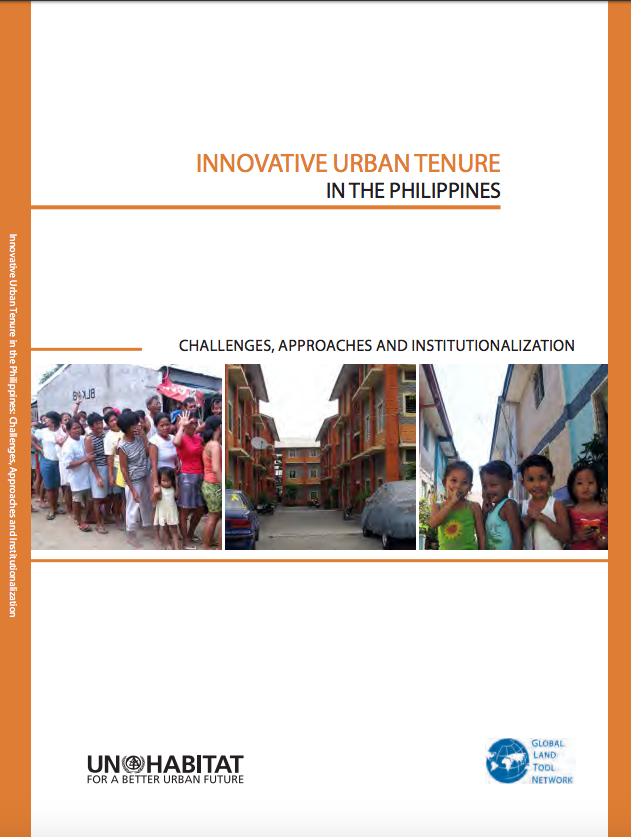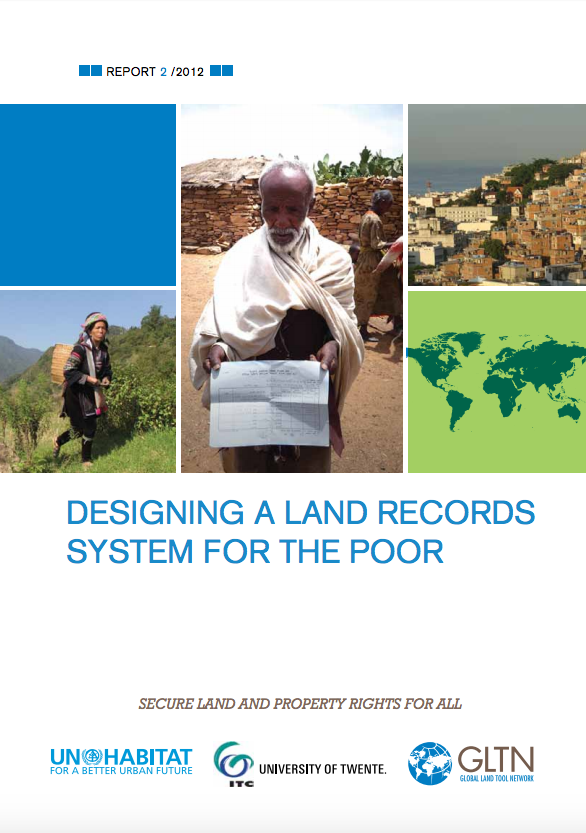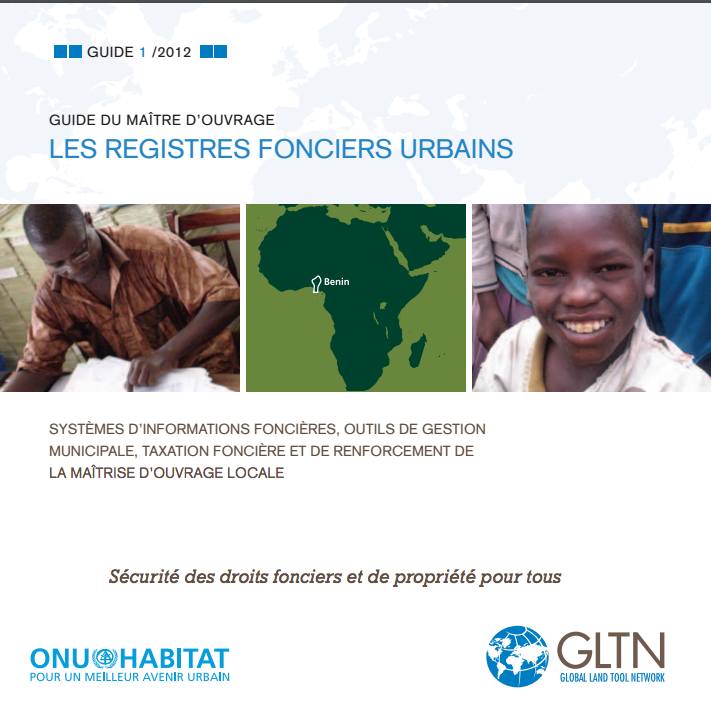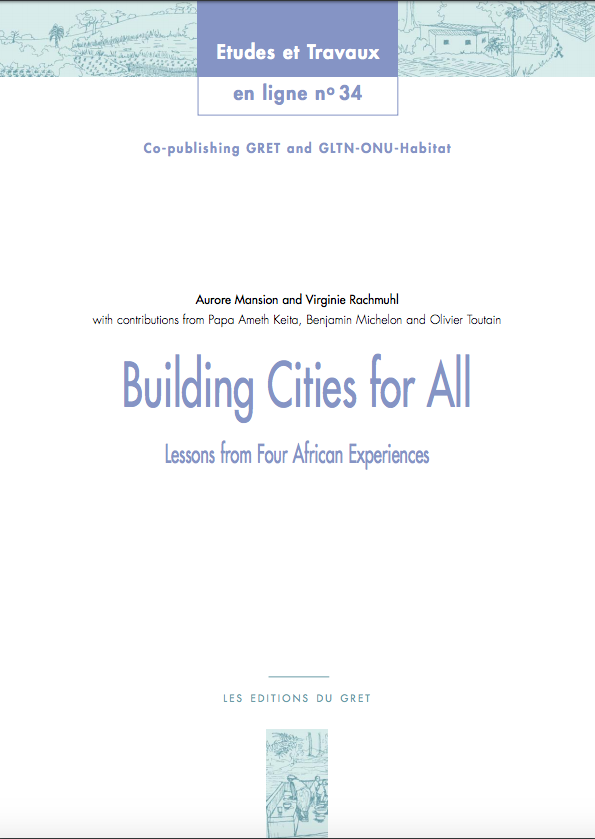Focal point
Location
The Global Land Tool Network (GLTN) is an alliance of global regional and national partners contributing to poverty alleviation through land reform, improved land management and security of tenure particularly through the development and dissemination of pro-poor and gender-sensitive land tools.
Secure land tenure and property rights are fundamental to shelter and livelihoods as well as the realisation of human rights, poverty reduction,economic prosperity and sustainable development.
The Global Land Tool Network (GLTN) main objective therefore is to contribute to poverty alleviation and the Millennium Development Goals through land reform, improved land management and security of tenure.
UN-Habitat through GLTN continues to work towards this with partners who include international civil society organizations, international finance institutions, international research and training institutions, donors and professional bodies.
Most developing countries use conventional land administration systems which cover less than 30 per cent of the country, leaving up to 70 per cent of citizens looking to informal and/ or customary approaches for their tenure security.
While there are many examples of good land policies, there are few policies that have been fully implemented due to lack of pro-poor, gendersensitive and largescale land tools. Further, conventional land titling approaches have largely failed to deliver their expected results since existing technical solutions are too expensive, inappropriate for the range of tenure found in developing countries, unsustainable financially or in terms of available capacity, and instead a range of land tenure options is more appropriate.
Core Values
Consequently, GLTN's core values and principles are founded in the development of land tools that are:
- Pro poor;
- Equitable;
- Sustainable;
- Affordable;
- Systematically large scale /scalable; and,
- Gender-sensitive, while taking into consideration:
- Good governance;
- Subsidiarity; and,
- The Continuum of Land Rights.
GLTN Objectives and Mandate
GLTN has developed a global partnership on land issues pulling together global partners, as well as many individual members. These partners include international networks of civil society, International Finance Institutions, international research and training institutions, donors and professional bodies. It continues to take a more holistic approach to land issues by working towards the following objectives:
- The establishment of a continuum of land rights, rather than just focus on individual land titling
- Improving and developing pro-poor land management, as well as land tenure tools
- Unblocking existing initiatives Assisting in strengthening existing land networks
- Supporting in the development of gendered land tools which are affordable and useful to grassroots
- Improving the general dissemination of knowledge about how to improve security of tenure
- Improving the general knowledge dissemination on the improvement of security of tenure
Resources
Displaying 236 - 240 of 286Innovative Urban Tenure in the Philippines: Challenges,approaches and institutionalization
This technical publication documents and draws lessons from the Philippines' experience in implementing alternative approaches in securing tenure for the urban poor. It also explores how these approaches can be institutionalized to achieve a larger scale and ensure sustainability. The study examines three approaches: presidential land proclamations, the Community Mortgage Program, and the usufruct arrangement. The key features of each approach are described and their application illustrated through two actual cases
Atelier régional d’apprentissage sur la sécurité d’occupation des terres et des ressources naturelles
Cette publication est le sommaire du rapport de l'atelier regional d'apprentissage sur la 'Securite de la tenure fonciere et des ressources naturelles'. L'atelier qui s'est tenu a Nairobi, Kenya du 29 au 31 mai a ete conjointement organise par ONU-Habitat/Reseau Mondial des Instruments Fonciers (GLTN) et le Fonds international de developpement agricole (FIDA).
Designing a Land Records System for the Poor
Designing a Land Records System for the Poor is the first attempt to fill the gaps in the development of new forms of land recordation to assist the implementation of a continuum of land rights approach at scale. It is about the development of the initial design of a pro-poor land recordation system - a recording system aimed at supporting the recognition and protection of a range of rights of the poor.
Les Registres Fonciers Urbains: systèmes D’Informations foncières,Outils De Gestion Municipale,taxation foncière et De Renforcement De La maîtrise D’ouvrage Locale (Benin Guide)
Cette publication, Guide du maitre d'ouvrage les registres fonciers urbains (RFU) propose des suggestions concretes pour developper et mettre en oeuvre un systeme d'information fonciere urbaine. Basees sur des leçons apprises dans le contexte des communes du Benin, le Guide demontre comment les autorites communales peuvent mobiliser les recettes fiscales a travers le foncier.
Building Cities for All - Lessons from four African experiences
En Afrique, pres de 500 millions de personnes resident aujourd'hui dans des bidonvilles. La plupart de ces quartiers ne sont pas << en regle >> en matiere de foncier, d'habitat, d'amenagement ou de services. Les operations urbaines constituent un outil privilegie pour ameliorer les conditions de vie des habitants des quartiers precaires. Malgre des progres indeniables realises dans la derniere decennie, le bilan reste mitige, notamment en termes d'impacts social, economique, urbain et environnemental.









